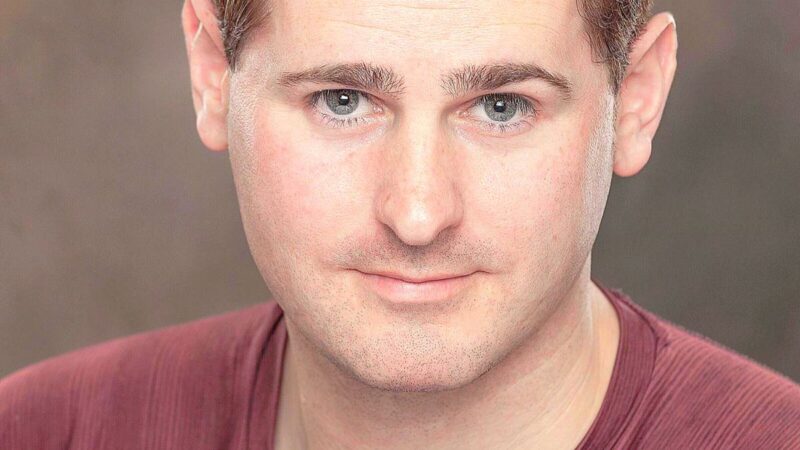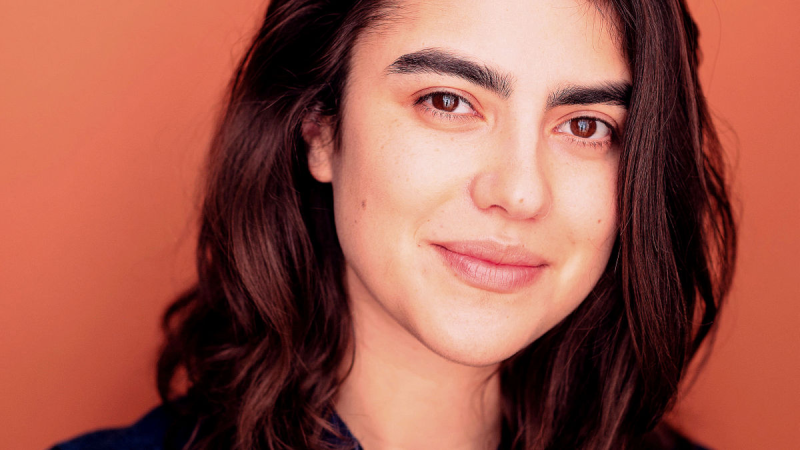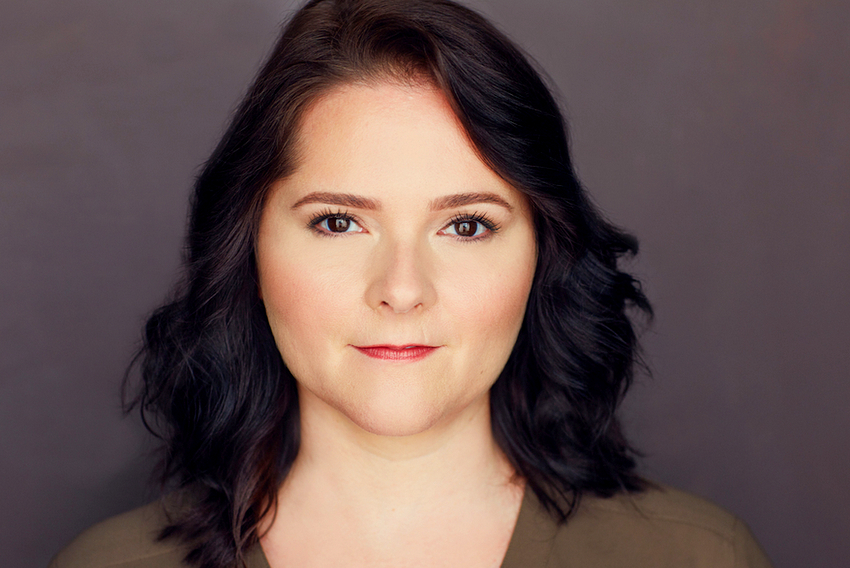
Q: Give an autobiography of yourself?
Lenore Marks: I’m primarily an actor, and I also write and produce. I’ve always had a natural curiosity about how the world works and why, and that’s what drew me to being an artist. I love taking that deep dive into a role or a world and exploring what I find there. For many years my focus was solely on acting, primarily theatre and indie film. My journey as a filmmaker came out of a desire to tackle roles I didn’t see being written for my type. I really wanted to have more agency over my career, and writing my own material seemed like a good way to achieve this. Producing just followed naturally. It seems to be the direction the industry is moving in, especially for women. Throw a rock and you will hit a production company run by an A-list actresses!
Q: Why did you get into filmmaking and screenwriting?
Lenore Marks: I was tired of not seeing women of my type in roles I wanted to play, so I wrote one for myself! It can sometimes be difficult to get a foot in the door as an actor when you don’t fit into a traditional box type-wise. Casting always wants to place us in categories: i.e. the gorgeous romantic lead, the broken but beautiful single mom, the nerdy computer geek – you get the idea. When your type blurs the lines, it can be harder to get in the room. And the further I go in this business, the more I realize I gravitate towards actors and filmmakers who don’t fit in the stereotypical boxes – they are much more compelling to me. Seeing the same types of stories being told by the same types of people gets so boring after a while. Why can’t the action heroine be an average sized woman of color? Why does the romantic lead have to be cis-gendered, impossibly thin, and beautiful? Why can’t someone who looks like the women I see around me every day be the heroine? We are constantly being sent messages that unless you look or behave a very specific way you are not worthy of working in this industry. And I’m tired of seeing extremely talented people being overlooked because they don’t fit a certain mold. I also think that opening up who you tell stories with allows you to experience something that may be familiar with completely fresh eyes. Bringing in a voice that is not usually heard in a particular capacity is often electrifying.
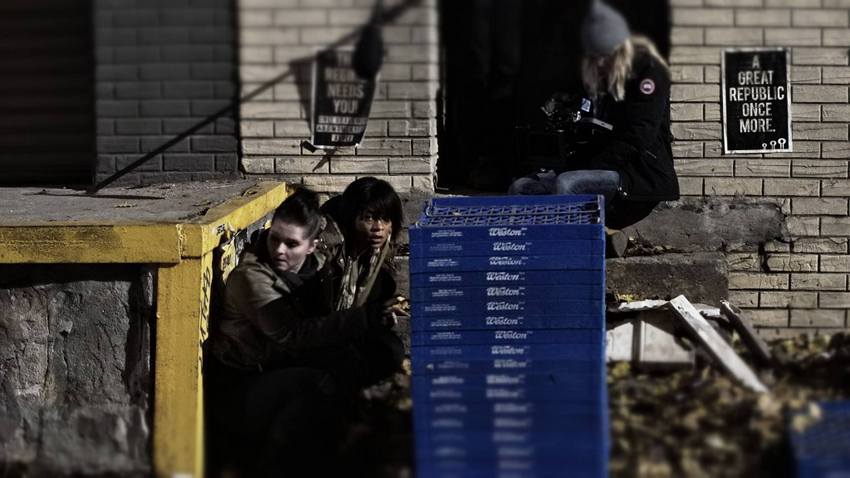
Q: How does an indie filmmaker distribute his/her film?
Lenore Marks: I don’t have any plans to distribute my film at this time. Crazy, I know! But my current film The Resistance is actually a stand-alone prequel to a feature film, so I will be focusing on using this film as is a proof of concept to secure funding for the feature. I am interested in partnering with female led production companies, and there is a market right now for female-driven story -telling, which is very exciting. But in the short term we will be hitting the festival circuit, so keep an eye out for us!
Q: At what period in the filmmaking process, does an indie filmmaker need to start planning for distribution?
Lenore Marks: For this specific project we were first and foremost looking to create art we believe in, so distribution is a conversation that happen sometime down the road. I do recommend defining your initial goals, including a decision about seeking distribution, as soon as possible – this will affect everything from budget, to content, to staffing. But the reality is the higher quality film you produce, the easier it will be to find distribution. And the earlier you can start planning for that, the better. For me, that meant hiring the right people for this film, not just the people with the longest resumes. Because if you have the right team everything else flows from there. And a good film with high production values has a much better chance of finding distribution.
Q: Indie filmmaking is a model based on zero-budgeting or small budgets. How do I get my film in theatres with such a budget?
Lenore Marks: I think if you aren’t exclusively seeking distribution, festivals are probably the best way to go. Positive buzz on the festival circuit will definitely attract the attention of distributors. But again, it’s important to know what you are offering and who you are targeting. You always have the option to fundraise once the film has been completed to self-finance a short run in theaters. Sometimes fundraising after completing post can be more effective since you already have a product to show people – you aren’t asking them to take a chance on something unknown.
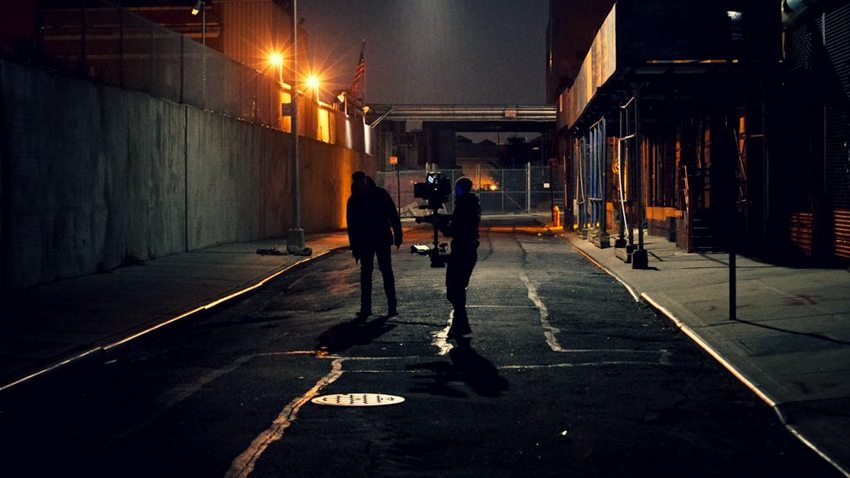
Q: How can filmmakers finance their projects?
Lenore Marks: I crowdfunded my project on Seed & Spark! I think the rise in visibility of crowdfunding platforms, especially those dedicated strictly to film, has been a boon to indie filmmakers. By no means is this an “easy” way to raise money – it is A LOT of work. I was exhausted at the end of my campaign! I found it’s imperative to have a pitch video that really sells the tone and feel of your film, and to be very specific about why you need the money and how it will be used. You also need photos that capture the feel of your film for visual references, and a great backstory that includes your “why” for making the project. It’s really about actively engaging people who visit your page and getting them excited about taking this journey with you. And doing all that requires a LOT of focused, consistent effort! In the end were successful – we got the green light and were able to move forward with shooting our film. I think a lot of our success was due to having a great concept and a great team. That alone got a lot of people on board. And consistent social media outreach with different content across different platforms. You never know how or where you will find your audience!
Q: What films have you written?
Lenore Marks: The Resistance (2018) [https://vimeo.com/291182283], a feature film set in the same world, and another feature about a woman who unexpectedly returns home and must confront the ghosts of her past. At the moment they only have working titles – who knew coming up with titles would be the hardest part of writing?!
Q: What are the films that you have made?
Lenore Marks: The Resistance (2018)
Q: Talk to us about your concept on collaboration?
Lenore Marks: I am huge on collaboration. In fact, my favorite part of producing ended up being the process of putting together a fantastic team. You can have all the ideas and all the money in the world, but if you don’t have a good team surrounding you, you aren’t going anywhere. I like to hire and work with people who are excellent at what they do and can operate with little supervision, but at the same time aren’t afraid to ask questions and make adjustments based on the ideas or needs of the rest of our team. I’ve found that hiring women in as many key positions as possible makes this process run much smoother! On set whenever we needed to make adjustments, the key players would confer and consistently make the best decision for the film. There was no arguing, no egos running rampant, and I really appreciated that! I was the lead in the film in addition to being the executive producer, and I had to trust my team. I couldn’t have given the performance I needed to if I was worried about my team making the wrong choice, or not being able to deal with the multitude of little problems that always arise on film sets.
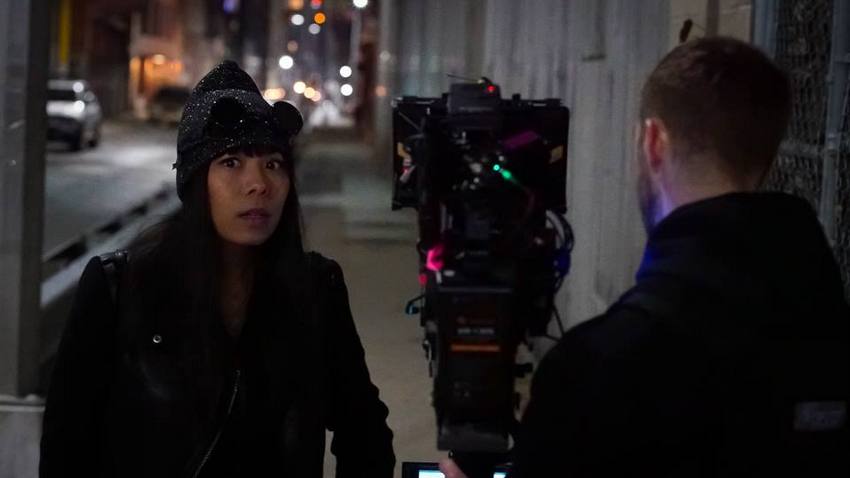
Q: How do you find the process of filmmaking as an indie filmmaker?
Lenore Marks: I love it! I love being able to tell a story and produce it on my own terms. I think indie filmmaking allows you to tell different kinds of stories using non-traditional methods. There’s nothing gimmicky or slick about it. I think it also challenges you to become really, really good at problem solving. When you have limited time and a limited budget, you have to make a decision and be confident in it. Of course, I wish money wasn’t ever an issue! However, even projects financed by big studios have tricky problems that need to be solved creatively, so it’s good to get the practice in finding creative solutions when you have a smaller budget. Everyone is trying to make the best film they can for the least amount of money possible.
Q: Describe your recent work, or film?
Lenore Marks: My current film is The Resistance. It’s about the rise of a female-led resistance movement in a dystopian future. I wrote the script in the summer of 2017 with an eye to shoot it the following November. I knew for my first film I didn’t want to tackle anything bigger than a short film. Pre-production started in September. I got a ton of recommendations for crew members from fellow filmmakers, and I started sending out the script and inquiry letters to everyone who seemed like a good match. I also took some friends out to lunch to pick their brains on the crowdfunding process – not having done it before I was nervous about running a successful campaign. Setting up the Seed & Spark campaign was definitely the hardest part of pre-production for me! I had phone meetings or in-person meetings with several crew members, and almost everyone fell into place very quickly. I knew the type of energy I wanted to have on my set, and it was easy to identify the people that were going to be a good fit. My goal was to hire women in all the key positions and by and large we managed to do that. Our sound guy was actually a guy, but otherwise we were all women. Oddly enough, finding a director proved to be the hardest part! I interviewed several people who for various reasons didn’t work out, and I was beginning to get nervous. I finally ended up posting on Twitter that I was looking for a female director for a sci-fi short film, and used every film & acting related hashtag I could think of. A few replies later I was in touch with Natasha Straley and it was clear from the get-go she was the one. She just got it – the world of the film, the themes, the undertones – everything.
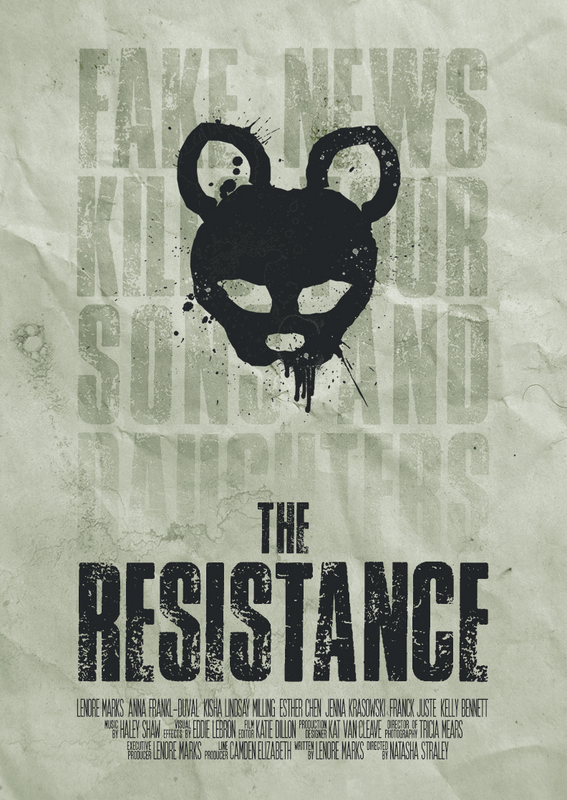
After that things moved very quickly. Our crowdfunding campaign was successful, and the rest of pre-production was spent combing through the script, figuring out what we would need in terms of props, art department, SFX makeup, city permits, weapons permits, locations, etc. Fairly early on in the process we made the decision to push production to December – it just worked out better for everyone involved. We had one major hiccup when the whole film almost got derailed over Thanksgiving, the week before our shoot. Fortunately however, we were able to solve the problem by bringing someone on board who could not have been more perfect.
Production was amazing, and we had some funny, unexpected things happen, like our line producer and our 1st AD having to sleep on set due to the insurance riders we had on some of our rental equipment! Luckily there were three couches and a small kitchenette on set, so it worked out surprisingly well. The hardest day to shoot was the last day. We were shooting overnight on the streets of DUMBO, and we had an NYPD cop with us since we were working with weapons. We had several locations over a 5-block area which required frequent company moves, and logistically it was tough. And did I mention we were shooting the first week of December?! So it was also quite cold.
The post-production process for the film took a lot longer than I expected. It took us three months to get to picture lock – the editing process was complicated and required a lot of finesse. Also, once we got into post we realized the film we had created was a larger scale project than it had seemed to be on paper. Which was both exciting and terrifying! So we decided to really take the time we needed to do the film justice. And then it took many more months for VFX, score, sound editing, sound design, and color. We premiered at the Portland Film Festival in October of 2018, which was very exciting – it was out first festival submission, so I think we all breathed a little easier after getting that acceptance. We are currently submitting The Resistance to a bunch of festivals, and we can’t wait to see what the future holds for this film!
Q: What are your future goals?
Lenore Marks: Make more movies! Well I have The Resistance on the festival circuit now, so for the short term my attention will be focused on getting into some bigger festivals and creating some buzz. I also need to secure financing for the feature, so at some point my attention will shift to pitching production companies. I’m percolating on an idea for a new short film, and I’ve almost completed another feature, this one set in Cold War era Berlin. Not to mention lots of auditions! So there are definitely some projects on the horizon!
Q: Tell us about what you think indie filmmaker need in today’s world of filmmaking?
Lenore Marks: Support. And money. But mostly support. If you have the right team in place, anything is possible. Filmmaking is a team effort, and as much as you may like to think you can go it alone, you can’t. That was biggest takeaway for me on The Resistance. Because of our team, insurmountable obstacles were merely hiccups. Also, cost effective access to quality equipment and insurance. Those two things alone can break an indie filmmaker’s budget!
Q: Briefly write about your career?
Lenore Marks: Well until fairly recently my career was solely as an actor – I’ve worked extensively in theatre and film. I did my initial conservatory training at the Atlantic Theater Company, and then later continued my studies at British American Drama Academy and The Freeman Studio. I continue to keep my skills razor sharp by staying in an on-going class and coaching privately. My journey as a filmmaker only started about two years ago, so I’m very interested to see where that leads. I’ve made some excellent contacts and worked with great people, and the desire to collaborate again is strong! Currently my focus is on getting The Resistance into as many festivals as possible in 2019, and working on new scripts. I also discovered a penchant for line producing – that was definitely an unexpected side-effect of producing my own work. When my schedule allows I teach dance and flexibility at various studios in the tri-state area. You can find out more about my career on my website: www.lenoremarks.com.
I would love to connect with you on social media – the indie filmmaker community is robust and thriving, and I love meeting people who are actively working in this field.
Social Media
Website: https://www.lenoremarks.com
Facebook: Meet Lenore Marks
Twitter: @meetlenoremarks
IG: @meetlenoremarks

